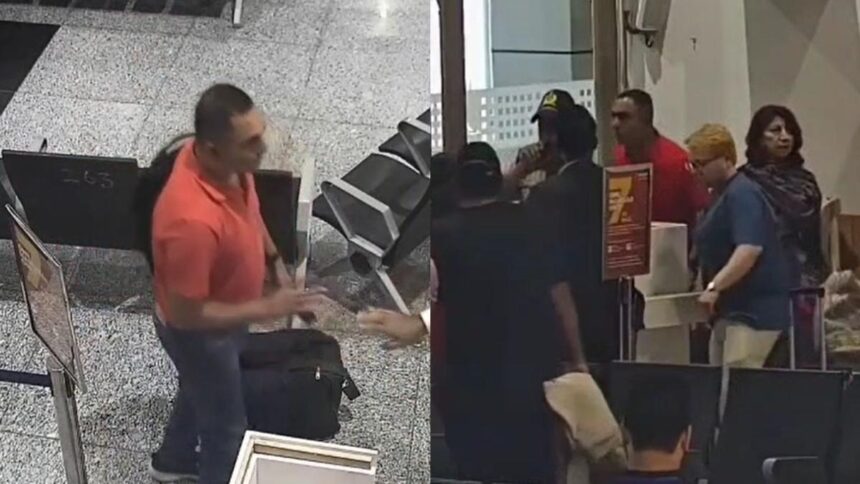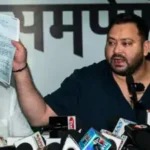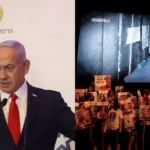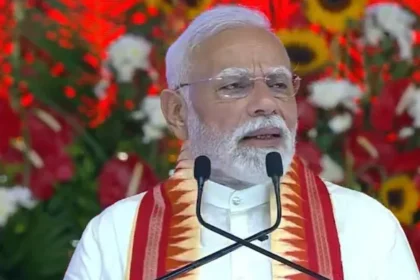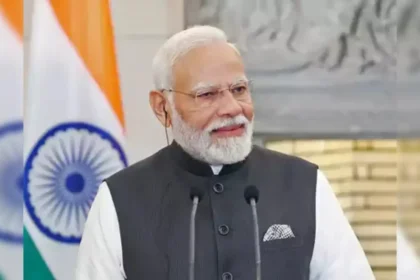Army Officer Assaults SpiceJet Staff at Srinagar Airport Over Excess Baggage Dispute
On a quiet weekday morning at Srinagar International Airport, a routine interaction between a passenger and airline staff suddenly escalated into a headline-grabbing confrontation. Reports indicate that an Indian Army officer, travelling on duty, got into a verbal altercation with ground staff of SpiceJet Airlines after being asked to pay for excess baggage. Within minutes, the disagreement spiraled into physical violence, resulting in chaos at the terminal and a nationwide debate on decorum, privilege, and accountability.
The officer, reportedly irked by the airline’s policy on baggage limits, refused to comply with the staff’s request. Eyewitnesses recount that the situation intensified when words turned aggressive and, shockingly, the officer physically assaulted one or more SpiceJet employees. The scene left passengers stunned and airport authorities scrambling for control.
This seemingly isolated incident highlights far more than a scuffle over extra kilos. It throws light on the tenuous balance between military service and civil protocols, the state of airline-customer relations, and the fragile tension that can erupt in high-pressure public spaces like airports.
The Spark: A Clash of Expectations and Authority
In India, members of the armed forces are held in high regard. They are symbols of sacrifice, discipline, and national pride. However, such reverence sometimes clashes with expectations in civilian life, especially in sectors like aviation where strict commercial rules override personal privilege.
SpiceJet’s baggage policy, like most low-cost carriers, is inflexible. It allows a specific allowance of check-in and hand baggage, and anything beyond that is chargeable, regardless of the passenger’s status. However, in practice, enforcement often leads to friction — especially when those in positions of perceived authority feel entitled to exceptions.
The Army officer allegedly refused to pay the excess baggage charge, asserting his position and expecting leniency. SpiceJet staff, trained to follow protocol strictly, declined the request. What followed was a breakdown in communication — and restraint.
Security Breach or Human Error?
The fact that a uniformed officer, expected to uphold the highest standards of conduct, engaged in an act of public aggression has raised significant concerns. The Central Industrial Security Force (CISF), which manages airport security, was called in to de-escalate the situation. While no arrests were made at the time, SpiceJet filed a formal complaint and requested that strict action be taken.
Questions immediately arose: Was this an isolated act of frustration or a deeper indicator of stress within the military fraternity? Could the airline staff have handled it more sensitively? Was airport security too slow to intervene? And should protocols exist for de-escalating such incidents involving uniformed personnel?
Public Reaction: Divided Opinions, Shared Shock
As news broke and CCTV footage began circulating online, reactions poured in from all sides. Veterans and senior defense officials condemned the incident, saying it tarnished the reputation of the entire military community. They emphasized that individual behavior should not undermine the collective dignity of the armed forces.
On the other hand, some citizens empathized with the officer, arguing that he may have been under pressure, possibly fatigued, or provoked. Still others criticized the airline industry as a whole, claiming that airline staff sometimes treat passengers with insensitivity and lack the training to handle such tense moments calmly.
Social media was ablaze with the incident, trending under hashtags like #AirportAssault, #ArmyOfficerControversy, and #SpiceJetRow.
In the aftermath of the altercation between the Army officer and SpiceJet ground staff at Srinagar Airport, both the Indian Army and the civil aviation sector found themselves under scrutiny. For the Indian Army — known globally for its strict code of conduct, discipline, and professionalism — the incident was more than just a PR problem; it became an urgent matter of internal accountability and institutional integrity.
Shortly after the incident came to light, senior Army officials initiated an internal inquiry. Sources close to Army Headquarters in Delhi confirmed that a departmental investigation had been launched to verify the officer’s conduct. The Army spokesperson issued a brief but firm statement acknowledging the incident, reiterating that “acts of indiscipline, irrespective of rank or service background, will be dealt with as per institutional protocol and due process of law.”
On the aviation side, the Directorate General of Civil Aviation (DGCA) also took note of the incident. While the DGCA does not govern military personnel, it is responsible for regulating behavior within civil aviation premises and was expected to coordinate with airport authorities to review safety protocols and ground staff procedures during confrontational episodes.
SpiceJet’s Public Stance: Firm, Yet Tactful
SpiceJet, too, responded swiftly and with caution. In its official statement, the airline condemned the physical assault on its employees and confirmed that a formal complaint had been filed with the Airport Police Station in Srinagar. The airline emphasized that its staff were only following standard operating procedures related to baggage limits and that no exemptions could be made arbitrarily, even for members of the defense forces.
Privately, senior executives at the airline expressed concern over the safety of their ground personnel. “What message are we sending if staff carrying out their duties are assaulted with impunity?” one official asked, adding that several employees had demanded clarity on how to handle similar situations in the future without risking harm or job loss.
Despite the seriousness of the incident, SpiceJet refrained from further escalation through media, choosing instead to allow authorities to take the lead in determining legal action. Industry insiders suggest that such restraint was strategic — avoiding a prolonged spat with the defense establishment while upholding the rights of its employees.
Airport Security: Wake-Up Call for Policy and Protocol
The confrontation raised significant questions about airport security readiness, especially when uniformed personnel are involved. CISF officers, who are trained to maintain peace in sensitive zones such as airports, were criticized for reacting slowly to the unfolding violence. By the time security personnel intervened, the physical scuffle had already concluded.
Security experts believe this episode underscores a broader need for specialized training — not only in crowd control or anti-terror vigilance but also in conflict de-escalation involving high-ranking civilians, VIPs, or defense personnel. Such training would help security forces manage delicate situations without provoking or being accused of disrespect.
This isn’t the first time such a clash has occurred. In the past, there have been sporadic reports of altercations involving VIPs, bureaucrats, and military personnel across Indian airports — many of them resulting in viral videos, public outrage, and disciplinary actions.
Legal Path Forward: Civil Charges and Military Inquiry
At present, the legal route is two-pronged. On the one hand, local law enforcement in Srinagar has taken cognizance of the complaint filed by SpiceJet and begun investigating the incident under relevant sections of the Indian Penal Code, potentially including assault, public disturbance, and intimidation. On the other, the Indian Army’s internal inquiry — under its own military code — will assess whether disciplinary action should be taken against the officer.
In theory, a military officer found guilty in civil court can also be subject to parallel military disciplinary procedures, including court-martial or administrative suspension. However, legal experts caution that proving culpability in such cases can be difficult without clear visual evidence or multiple corroborating witnesses.
Some have also raised concerns over jurisdictional overlap — will the civil court verdict influence the Army’s judgment? Or will institutional loyalties and reputational preservation influence the outcome?
Civil-Military Relations: A Delicate Balance Under Stress
Perhaps the most important — and overlooked — dimension of this incident is its impact on the image of civil-military relations in India. In a nation where the military has historically maintained a professional distance from political or public controversy, such episodes strike a discordant note.
The average Indian holds immense respect for the armed forces. However, public opinion is also increasingly shaped by visible behavior in everyday situations. Incidents like this can sow confusion and lead to unhealthy generalizations — something both the military and public institutions are keen to avoid.
Think tanks and civil society organizations have called for workshops and awareness programs aimed at reinforcing mutual respect between civil staff and military personnel. Some have even proposed the establishment of “Uniformed Passenger Protocols” for all airlines — guidelines that explain both the privileges and responsibilities of traveling defense personnel, to avoid future conflicts.
Following the circulation of mobile footage showing the altercation at Srinagar Airport, national and regional media outlets seized upon the incident with urgency. Initial headlines ranged from factual to highly dramatized. Phrases like “Army officer loses temper,” “Violence erupts at Srinagar terminal,” and “Uniform vs Uniform: Army and CISF face off” flooded both traditional media and digital platforms within hours.
While some media houses attempted to maintain a balanced tone — giving space to both the airline’s version and the Army’s procedural response — others leaned into the visual drama, running slow-motion footage, commentary loops, and even expert panels questioning discipline in the armed forces.
NDTV, The Hindu, and The Indian Express provided relatively nuanced reporting, emphasizing the broader implications for civil-military dynamics and airport safety. In contrast, several tabloid-style outlets and YouTube news channels sensationalized the story, framing it as a symbol of growing entitlement among public servants or as a supposed breakdown of hierarchical order.
Importantly, the Army’s swift response — acknowledging the issue and initiating an inquiry — helped temper the narrative before it spiraled into a full-blown media scandal.
Public Reaction: Divided Loyalties, Mixed Sentiments
On social media platforms such as X (formerly Twitter), Instagram, and YouTube, the incident triggered a polarizing debate. Hashtags like #SpiceJetAssault, #ArmyDiscipline, #BaggageRow, and #SrinagarAirportScuffle trended nationwide for over 24 hours.
A large segment of users defended the Army officer, arguing that soldiers deserve better treatment, especially given the difficult conditions under which they serve. These voices claimed the airline staff should have exercised more discretion or flexibility regarding baggage limits.
On the other hand, a significant number of citizens — including veterans, bureaucrats, and industry professionals — condemned the use of physical force. “Serving in uniform doesn’t give anyone the right to raise a hand on civilians doing their job,” read one widely shared post by a retired IPS officer. Others echoed the sentiment that rule-based systems cannot be bent by rank or background, no matter how revered.
The conflict thus became a flashpoint for larger societal conversations about power, respect, and accountability — especially in public infrastructure settings like airports, where friction between entitlement and procedure is increasingly common.
The SpiceJet Employees: Trauma, Support, and the HR Aftermath
The SpiceJet ground staff involved in the altercation were reportedly shaken. According to airline sources, the employee who was physically attacked was taken for a medical examination immediately after the incident. Mental health support and temporary duty reassignment were also offered.
Behind the scenes, SpiceJet’s HR department held closed-door meetings with airport teams to reassure them that the company would not tolerate aggression against its staff. It also initiated dialogue with airport security units to improve on-ground response protocols in future conflict scenarios.
There is growing internal demand — not just within SpiceJet but across the industry — for a formal Standard Operating Procedure (SOP) in situations involving high-risk passengers, including VIPs, military officers, and celebrities. Aviation unions have also weighed in, requesting that DGCA and the Ministry of Civil Aviation issue binding guidelines to protect airline personnel from workplace violence.
Comparative Global Incidents: Learning From International Aviation
The confrontation at Srinagar Airport is not an isolated case globally. Across the world, airlines and airport staff have faced challenges involving uniformed personnel or government functionaries misusing perceived privileges. Several international cases stand out as instructive:
- United States (2017): A U.S. Army Major traveling on Delta Airlines clashed with airport security over firearm declaration protocols. Though no physical violence occurred, the officer was escorted out and later reprimanded after a thorough inquiry by the Pentagon.
- Pakistan (2014): A member of the Pakistani military assaulted a PIA employee at Islamabad Airport over luggage concerns. The military publicly apologized, but the officer faced no visible disciplinary action, sparking nationwide criticism.
- Russia (2019): An Air Force colonel was fined and suspended after threatening airline crew over delayed boarding, highlighting Russia’s increasing focus on military-civil boundaries.
In these cases, the response from institutions shaped the public’s perception. Where disciplinary measures were transparent and decisive, the military retained its respect. Where cover-ups occurred, trust eroded.
India, experts argue, must now adopt a clear, zero-tolerance policy in such matters — regardless of who is involved — to preserve both public faith and institutional dignity.
Balancing Protocol and Privilege: The Larger Debate
The deeper issue lies in the perceived contradiction between service privilege and civic equality. Defense personnel do deserve logistical concessions in certain scenarios — be it in travel, housing, or emergency services. But the line between privilege and precedent blurs when disciplinary breaches occur.
There’s also a legal gray zone. Military codes of conduct govern soldiers’ behavior even in civilian spaces, but enforcement becomes tricky unless the military cooperates fully with civil authorities. In this case, early signs suggest cooperation — but observers caution that accountability must go beyond statements and result in visible consequences.
Civil society groups have suggested that India consider a joint protocol between the Ministry of Defence and the Ministry of Civil Aviation, outlining expectations, conflict de-escalation strategies, and SOPs for both airline staff and defense passengers.
Following the public backlash and media coverage, the Indian Army confirmed that a preliminary internal inquiry had been initiated. The Army issued a brief statement:
“The matter involving the officer at Srinagar Airport is being looked into. The Indian Army upholds the highest standards of discipline and conduct, both in uniform and in public spaces.”
Sources within defense circles revealed that the officer in question had been temporarily removed from field duties pending the outcome of a detailed Court of Inquiry (COI). This is standard protocol in incidents involving public misconduct.
More importantly, the Army’s prompt acknowledgment of the incident helped contain speculation about institutional bias or cover-up. Veteran officers on news panels lauded the leadership’s willingness to confront the issue, even as they urged due process and a fair evaluation of all facts — including provocation, procedural lapses, or health/emotional stressors affecting the officer’s state of mind.
While the outcome of the inquiry remains confidential at this stage, senior military officials have reiterated that violence against civilians, particularly against service providers like airline staff, is “unacceptable and incompatible with Army values.”
Aviation Sector’s Call for Reforms and Standard Operating Procedures (SOPs)
The airline industry has reacted strongly to the incident, using it as a case study to demand institutional reforms. Key aviation stakeholders, including the Federation of Indian Airlines (FIA) and Airline Operators Committee (AOC), have submitted a joint proposal to the Directorate General of Civil Aviation (DGCA), calling for:
- Mandatory Conflict De-escalation Training for airline and security staff at all airports.
- Revised SOPs for High-Risk or VIP Travelers, including those from armed forces, bureaucracy, or judiciary.
- Installation of Body-Worn Cameras for frontline staff to provide objective evidence in case of disputes.
- 24/7 Mediation Cells within terminals for real-time resolution of fare disputes, baggage issues, or behavioral complaints.
Additionally, there is a growing call for DGCA to create a formal Airline Workers Protection Act — akin to what exists in countries like the U.S. and Canada — ensuring that airline and airport personnel enjoy legal safeguards similar to police, railway staff, and medical professionals.
SpiceJet, specifically, has proposed revising its internal “Red Alert” protocol to better involve airport police and CISF in potential flashpoints before they escalate.
Airport Security Agencies Under Scrutiny
While most of the public focus remained on the altercation between the Army officer and the SpiceJet staff, Central Industrial Security Force (CISF) officers stationed at Srinagar Airport were also drawn into the incident.
In a move that caught attention, CISF personnel intervened swiftly and professionally, detaining the officer without using excessive force. Their actions were praised by airport management and the Ministry of Civil Aviation.
However, security experts raised an important concern: whether existing airport security protocols adequately empower CISF to defuse volatile scenarios involving uniformed government officers or defense personnel.
In response, CISF’s internal policy cell has begun reviewing training modules related to VIP and military passenger interactions. Suggestions include enhanced situational judgment training and formal mock drills simulating such confrontations.
The Broader National Discourse: Respect, Accountability, and Entitlement
The incident triggered an unexpected but necessary wave of introspection across Indian society. It surfaced difficult, often unspoken questions about uniform privilege, civil-military parity, and public behavior in formal spaces.
Commentary pieces in The Hindu, Scroll.in, and The Print highlighted how India’s evolving democratic landscape must also reflect in institutional accountability — irrespective of an individual’s occupation, title, or uniform. Columnists debated the blurred lines between service reverence and legal immunity.
Civilians voiced frustration that those expected to uphold law and order — including members of the armed forces — sometimes perceive themselves above the law when off-duty. Meanwhile, veterans and active-duty soldiers shared their concerns about growing disrespect towards the forces, and how one-off incidents shouldn’t tarnish the reputation of lakhs of disciplined servicemen.
In classrooms, courtrooms, boardrooms, and even within the Armed Forces, the underlying theme became clear: the rule of law must apply equally to all citizens.
Political Echoes and Bureaucratic Conversations
Although no political party made an official statement, several MPs tweeted about the need for introspection and legal reforms. Civil aviation policy makers in the Ministry of Home Affairs (which oversees CISF) and the Ministry of Civil Aviation held closed-door consultations to discuss future strategy.
A senior official — speaking anonymously — confirmed that a joint inter-ministerial working group is being considered to recommend reforms at the intersection of military transport logistics, airport conduct codes, and civil rights of aviation workers.
Meanwhile, defense representatives have proposed special Military Liaison Counters at high-traffic airports such as Delhi, Mumbai, Srinagar, and Guwahati to streamline travel-related disputes involving soldiers and reduce public incidents.
Also Read : Tejashwi’s Twin Voter ID Row: EC Issues Notice, Asks RJD Leader to Submit EPIC Card


